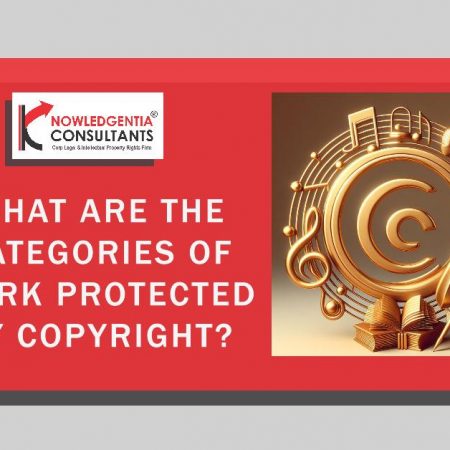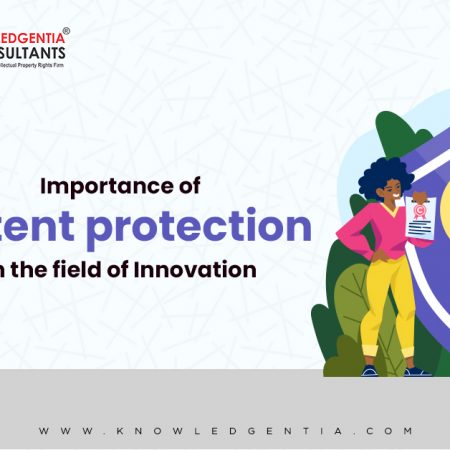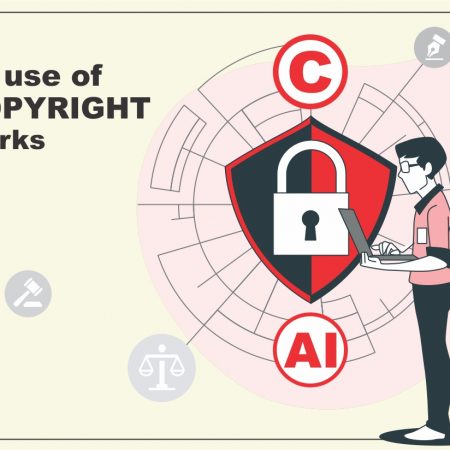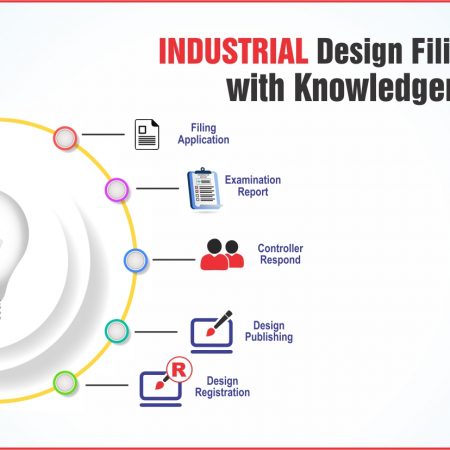INTELLECTUAL PROPERTY DIVISION IN DELHI HIGH COURT AND IMPORTANT CASE LAWS 2023
PUBLISHED AS ON 16.10.2023 BY MS. APARNA JAIN, MS. HARINDER NARVAN, MS. AASHRIKA AHUJA AND MS. RIA DHIMAN
INTRODUCTION
IPD is a specialized division that has been set up to exclusively adjudicate matters relating to intellectual property after dissolution of IPAB. Within IPD’s purview, all matters relating to IP are included such as fresh and pending infringement suits, appeals against decisions of the patent/ trademark/ copyright offices, revocation/ cancellation actions and applications for rectifications of the patents/trademark register. The most notable feature of IPD at the Delhi High Court is that it is not only staffed with IP experts but also experts from other areas. New Rules have been enacted which have streamlined the procedures and processes pertaining to various matters. All suits are referred as “commercial suits” which are subjected to fixed deadlines in terms of completion of pleadings and other matters. In addition, court can also seek assistance from independent experts for various matters. Knowledgentia Consultants, which is the best law firm in India, situated in the heart of NCT Delhi offers expert advice including taking all necessary actions for resolving all kind of IP matters including but not limited to litigation, prosecution, cancellation, appeals etc.
The IPD Rules define Intellectual Property Rights to mean:
“i. Rights pertaining to Patents, Copyrights, Trademarks, Geographical Indications, Plant Varieties, Designs, Semiconductor integrated circuit layout-designs, Traditional Knowledge and all rights under common law, if any, associated therewith;
ii. Matters relating to passing off, acts of unfair competition, disparagement, comparative advertising etc.;
iii. Protection of trade secrets, breach of confidential information and related subject matters;
iv. Tortious actions involving intellectual property, privacy and publicity rights;
v. Matters pertaining to data exclusivity, domain names and other matters related to data protection, involving intellectual property issues, as also those arising under the Acts as defined in Rule 2(a);
vi. Matters involving internet violations relating to any of the subject matters under clauses (i) through (v) above related matters.”
It is pertinent to note that cases pertaining to the Information Technology Act, 2000 dealing with rights and liabilities of intermediaries, online market places and e-commerce platforms involving issues relating to any of the aforementioned rights have also been included within the purview of IPR and are consequently within the jurisdiction of the IPD. Thus, with the increase in online transactions and consequent increase in disputes related therewith, the IPD is the appropriate Court for dealing with such issues also.
The Rules define the Acts dealt with by the Rules to mean The Copyright Act, 1957, The Designs Act, 2000, The Geographical Indications of Goods (Registration and Protection) Act, 1999, The Patents Act, 1970, The Protection of Plant Varieties and Farmers’ Rights Act, 2001, The Semiconductor Integrated Circuits Layout- Design Act 2000, The Trade Marks Act, 1999, The Information Technology Act, 2000. Hence, as is apparent, the Rules not only consolidate the matters pertaining to intellectual property rights that were brought within the jurisdiction of the High Court by virtue of the Tribunal Reforms Act, 2021, but have gone a step further and added certain other statutes also, disputes relating to which will be heard only by the IPD.
The Rules further define “IPR subject matters or cases or proceedings or disputes” to include all original proceedings, appellate and other proceedings related to IPR as defined above filed before the IPD. It shall also include IPR suits, revocation applications, cancellation applications, other original proceedings, appeals and petitions from the various IPOs and all other proceedings which were hitherto maintainable before the IPAB under provisions of the Act(s) etc. [Rule 2 (l)]
Further, even Writ Petitions (Civil), Civil Misc. (Mains), Regular First Appeal, First Appeal from Order, Civil Revision Petition arising out of IPR subject matters and disputes dealt with by the commercial courts in Delhi, except those matters that are to be dealt with by a Division Bench, have also been defined to be IPR subject matters.
Another important step taken at IPD is recording of evidence via video conferencing. This a welcome step which can prevent inordinate delay in disposal of cases . Appointment of law researchers for assistance of judges in resolving matters timely and with great precision is a noteworthy step that has resulted into passing of few phenomenal judgements in the year 2023 some of which are discussed and mentioned as below:-
RECENT IPD CASES of 2023
- PEPSICO INC. & ANR. VS PARLE AGRO PRIVATE LIMITED, 2023 SCC OnLine Del 5823
The Delhi High Court, refused to restrain Parle from using the tagline FOR THE BOLD as part of the label on its B FIZZ bottles and cans, in a suit for permanent injunction filed by PepsiCo Inc. The Court, however, restrained Parle from using the tagline FOR THE BOLD as predominant part of any advertising campaign of its B FIZZ beverage.
The Court, while deciding the case, observed that, while the rival goods are, in fact, allied and cognate in nature, the tagline FOR THE BOLD! appearing on Parle’s B FIZZ bottle/can is the least conspicuous element of the composite label, and thus, is likely to go unnoticed by an average consumer. This, in the Court’s opinion, negates any likelihood of confusion in the mind of the public. Resultantly, the Court refused to injunct Parle from using the tagline FOR THE BOLD! appearing on Parle’s B FIZZ bottle/can. The Court also directed Parle to not alter the label on its B FIZZ bottle/can without prior approval of the court.
- M/S.RSPL HEALTH PRIVATE LIMITED Vs RECKITT AND COLMAN (OVERSEAS) HYGIENE HOME LIMITED & ANR, 2023 SCC OnLine Del 5154
This case involves petitions filed under section 57 of the Trademarks Act, 1999 seeking rectification of the mark “HARPIC DRAINXPERT” which is registered in favor of the Respondent. The court held that the Appellant (RSPL) neglected to lay out a case for refuting
the Respondent’s registrations of the word mark “HARPIC DRAINXPERT” in classes 3 and 5. The primary requirement for a trademark to be ineligible for registration under Section 11(1)(b) is the cumulative satisfaction of three conditions: similarity between the marks, identity or similarity of goods or services, and the likelihood of confusion among the public. In this case, the Appellant’s trademarks predate the applications of the Respondent, making them “earlier trademarks.” However, the Court found that the main issue is whether the marks are similar and whether they are likely to cause confusion.
The Court evaluated the similarity between the marks “HARPIC DRAINXPERT” and “XPERT” and found that, when seen as a whole, they are not confusingly similar. The dominant and prominent part of the impugned mark is “HARPIC,” while “XPERT” is only a part of the second word. Thus, they do not create a likelihood of confusion. Additionally, the manner in which the Respondent uses the mark further eliminates any confusion.
The Court emphasized that similarity under the Trade Marks Act only exists if it is likely to confuse the public. The average customer, when encountering the marks in the market, would not confuse them, considering “HARPIC” is prominently displayed in the impugned mark.
Regarding the Appellant’s claim of bad faith, the Court ruled that it was unsupported by any evidence and did not find merit.
- FYBROS ELECTRIC PRIVATE LIMITED Vs HIRA LAL JAIN TRADING AS VIKRAM CABLE INDUSTRIES AND ANR & ANR, 2023 SCC OnLine Del 3180
A petition under section 57 was filed by the petitioner “Fybros electric” who is the registered proprietor of the mark ‘FYBROS’ having its user claim since 2008 under class 9 and 11. While the respondent submits that he has obtained registration of mark “NEBROS” in class 9 for wire and cables which they claimed to be deceptively similar to the petitioner’s mark. The court held that the respondent’s mark “NEBROS” was liable to be removed from the register under section 57(2) of the Trademarks Act, 1999 as the mark was deceptively similar to the petitioner’s mark “FYBROS” and there could be a likelihood of confusion amongst public and the mark of Respondent NEBROS does not have prior usage.
- ANUBHAV JAIN Vs SATISH KUMAR JAIN & ANR, 2023 SCC OnLine Del 800
In this case the Respondent-Plaintiff contested maintainability of an application for rectification u/s 57 read with Section 125 seeking cancellation of its registered mark on the basis of non-fulfilment of the procedure prescribed u/s 124. The Court first noted that for Section 124 to apply, the Petitioner-Defendant must make a plea of invalidity as a defence in the infringement suit, which was not done in the present case. Thus, according to the Court, Section 124 shall have no application on this sole ground.
However, the Court then proceeded to assume that such a plea of invalidity was raised in the suit. In light of this assumption, the following findings were made:
- According to the Court, the Patel Field Marshal judgement indicates that the right to seek rectification u/s 124 is an ‘independent’ right and is in addition to the right conferred u/s 57. Thus, the application of Section 124 does not take away a party’s right to independently invoke its remedy u/s 57 .
- It was observed that since the Supreme Court in Patel Field Marshal was not concerned with the right available to a person u/s 57 of the Trade Marks Act, the judgment cannot be said to be an authority on the point that once an infringement suit is filed against the Defendant, the Defendant loses its right to seek cancellation of the Plaintiff’s trademark u/s 57. Therefore, Section 57 is not subject to Section 124, especially because no clause in Section 57 makes it subject to any other provision.
- The Court ultimately held that due to the above findings, the Civil Court’s permission is not required before instituting the present petition .Hence, in other words, the Court has held that since the rights u/s 57 & 124 are independent of each other, the Civil Court’s permission is not required before filing a rectification petition u/s 57 even if the plea of invalidity is made in the suit.
The Delhi High Court vide its subsequent order dated 08.02.2023 in the said case, partly allowed the rectification petition filed in the matter by remanding the matter back to the Registrar of Trade Marks, and directed the Registrar to decide the questions framed by the Court after hearing the parties. Interestingly, the Court, till the decision of the Registrar, restrained the Registered Proprietor from asserting any right consequent to such registration in any judicial proceedings which may be pending vis-à-vis the said marks.
5.ARMASUISSE Vs THE TRADE MARKS REGISTRY & ANR, 2023 SCC OnLine Del 4 : (2023) 94 PTC 13
The Delhi High court permitted an appeal moved by ‘Armasuisse’ (Federal Agency of the Swiss Federation) and it was held that marks ‘white cross on black background’, ‘white cross on black background’, white cross on red background’ and ‘SWISS MILITARY’ were not eligible in respect to trademark registration as it might propose connection with Swiss Military establishment.
6. THEOS FOOD PVT LTD & ORS. Vs THEOBROMA FOODS PVT LTD, 2023 SCC OnLine Del 6077
Both these outlets are well known renowned premium bakery outlets in India. A case was filed by Theobroma in 2015 against Mr. Karan Narula (Director of Theos). In this case, it was held that THEROBROMA is free to expand its outlets under the mark/name “THEOBROMA” across the country. However, THEOS shall be restrained to Delhi-NCR region. Further the court stated that THEOBROMA shall continue to retain all its trademark registrations for ‘THEOBROMA’ and its registered variants and derivatives including THEOS and THEO.
- NOVATEUR ELECTRICAL & DIGITAL VS V-GUARD INDUSTRIES LTD , 2023/DHC/000960
The Delhi High Court, in a recent judgment, has held that counterclaims seeking cancellation and expunction of a design registration is maintainable even during the pendency of a civil suit basis the same registration. In a suit for piracy of a registered design filed by Novateur Electrical & Digital Systems Pvt. Ltd. (“Plaintiff”) against V-Guard Industries Ltd. (“Defendant”), the Defendant took the defense of invalidity of the Plaintiff’s registered design on the ground of prior publication. The Plaintiff submitted that the design statute does not provide for such a counter claim, and that petitions seeking revocation or cancellation of a design have to be filed with the Controller of Designs. The Plaintiff further submitted that the grounds of cancellation of a registered design can, instead, be sought as a defense to a plea of piracy, which the Defendant has rightfully done in its written statement. As such, per the Plaintiff, the Defendant cannot maintain a plea for revocation of the suit design even in the form of a counter claim. The Defendant, on the other hand, submitted that this issue has been settled by the Supreme Court in the case of S.D. Containers Indore v. Mold-Tek Packaging Ltd. [(2021) 3 SCC 289], in which it was held that cancellations and revocations are independent remedies. The Court, upon examining the S.D. Containers decision, held that the right to seek revocation of a registered design is independent of the right to raise a plea of invalidity of a registered design as a defense in a piracy suit. Accordingly, the objection raised by the Plaintiff to the maintainability of the Defendant’s counter claim was rejected.
- OPENTV INC VS CONTROLLER OF PATENTS AND DESIGNS, 2023 SCC OnLine Del 2771
Opentv Inc is a global giant in interactive television and media solutions. The appellant has been engaged in providing interactive and enhanced television solutions and claimed to leverage its technologies and worldwide patent portfolio in providing such services and solutions.
It filed for a patent for an invention “Method and System for Transmission of Interactive Television Applications”. However, the patent office rejected the application on the grounds that the claimed invention fell within ambit of section 3(k) of the Patents Act, which does not include computer programs per se from patentability.
This case clarified the scope of patentability for software-based innovations and importance of technical effects and advancements in determining patent eligibility in India. The decision strikes a balance between empowering innovation & development and preventing the monopolization of computer programs. The Court opined that in the present case, the conversion of method claims into system claims in the manner sought to be done, would be broadening of the Claims which was impermissible as per Section 59 of the Act. The Court noted that the Patent Office’s reasoning was that the scope of the claims as amended was beyond the scope of the original claims as filed. Thus, the same was beyond what was permissible under Section 59 of the Act. The Court observed that though there was no embargo on permitting a patent applicant to amend claims even at the appellate stage, the amendment sought in the present case intended to widen the scope of the original claims as filed, thus it could not be allowed.
The Court noted that in Section 3(k) of the Act, the exclusion in respect of business methods was an absolute one and was not restricted by the words ‘per se’ as in the case of computer programmes, as in the case of computer programs, the use of the phrase ‘per se’ meant that a program per se was not patentable but when the same exhibited a technical effect or an advancement, or a technical contribution, the invention could become patentable.
The Court further noted that in the present case, a computer program was involved in the implementation of the invention which involved the use of various software applications. However, it was not the computer program or the software, which was the claimed invention, it was the method in which it was put into application for giving of a gift which was sought to be patented. The Court also noted that various known components and technologies were being adapted to enable giving of a gift without human intervention except at the beginning where the gift and recipient was chosen by the sender. The purpose of the invention was primarily to enable giving of a media in tangible or intangible format to the recipient and such giving of a media irrespective of whether was worded as a method or as a system would be nothing but a method for doing a particular business i.e., for giving of a media as a gift. Thus, the Court opined that the subject invention was therefore directed purely towards a method of giving a media as a gift which was nothing but a method of selling a media for gift purposes and was hence a business method. Thus, the Court dismissed the appeal and held that the subject invention was attracted by the exclusion from patentability under Section 3(k) of the Act.
CONCLUSION
There have been a series of complex and intriguing Intellectual Property cases in 2023. From tech giants battling over patents to evolving challenges presented by AI, the metaverse, NFTs, pharmaceutical patents and remote work, the IP landscape continues to evolve. As we move forward it becomes crucial for legal professionals, policymakers and innovators to stay informed and adapt to these changes to ensure the continued protection of IP rights. Knowledgentia Consultants which is the best law firm for global IPR protection not only adapts to the changing legal scenario but also makes the transition for clients easy and accessible. We are your one-stop solution for all kinds of legal, compliance and supplemental matters concerning IP matters. In case of any query regarding this matter you may email us at info@knowledgentia.com or visit our website -https://knowledgentia.com/.








